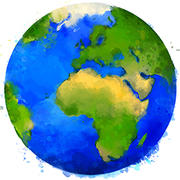
As money, traded goods, and cutting-edge technology are passaging international borders at an unprecedented pace, so too, are health services and health professionals. While the world is becoming more interconnected—people can talk on the phone with friends thousands of miles away, buy exported Indonesian gold, and hold a banana imported from Ecuador (all at the same time!)—this novel interdependence also comes with its own set of questions. If goods can move freely between nations, what are the implications when people do the same? How do shifting population dynamics and changing epidemiological patterns within countries influence global responses to emerging challenges?
Adding to the mix the social, economic, political, and environmental factors which influence a person’s overall health and well-being—the social determinants of health—leads to an equivocal question: Is Globalization Good or Bad for World Health? It’s also the title and central focus of Faculty Director Sue J. Goldie’s popular undergraduate course, Societies of the World 24. Commonly known at Harvard as SW24, this course is offered through the General Education program at Harvard College, and elucidates contemporary health challenges that cross borders and necessitate multiple perspectives.
Students begin with the building blocks of demography, using data to explore trends in fertility, mortality, and migration, as well as the significance for age structure and population growth. With this basic understanding in hand, students delve into specific health conditions, conditions for health, and, by the end of the course, complex, transnational risks.
On the first day of SW24, Dr. Goldie informally surveyed students, asking questions such as: “How many of the world’s 1-year-old children today have been vaccinated against some disease?” and, “How many people in the world have some access to electricity?”
Laughter and shock rippled across the room as students found out that the answer to each of the questions had been 80 percent. Goldie explained that people ranging from first-year students to public health field experts tended to get these answers wrong, underestimating the progress in global health due to skewed information in the news, therefore leaving people ill-prepared to address global health challenges without the most accurate and updated knowledge and tools. She illuminated the importance of health indicators and health-relevant metrics, designed to help analyze trends and draw conclusions between and within countries.
Despite the overall progress, leaders are still urgently needed who are equipped with data literacy and critical thinking skills. SW24 students will not only hone these skills, but also delve into topics ranging from climate change and its effect on displaced populations and immigration, the connections between unintentional injuries and life in urban areas vs. slums, all the way to mental health and substance abuse disorders around the world. GHELI staff are supporting the instructional design of the course, simultaneously using the topics covered in class to pilot activities and create educational public goods.
By the end of the course, students will have viewed localized health issues in a global context, questioned conventional perspectives, and challenged ideas—prepared to take their data literacy, theoretical knowledge, and analytical skills from a classroom context and use them as problem-solving individuals in an increasingly interdependent world.
In addition to SW24, Goldie will be teaching an online course at the Harvard T.H. Chan School of Public Health on the applications of decision analysis and cost-effectiveness analysis in clinical and public health decision making. Titled RDS 202: Decision Science for Public Health, the course will be taught in collaboration with GHELI’s Senior Scholar in Residence, Dr. Eve Wittenberg.
